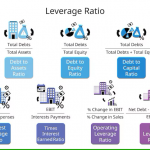Private equity and venture capital are two distinct investment strategies that have gained significant attention in the investment community. While they share some similarities, it’s important to understand the key differences between the two.
Private equity refers to the investment in privately held companies, typically with the aim of generating long-term capital appreciation. This can be done through a variety of strategies, such as leveraged buyouts, growth capital investments, and distressed asset acquisitions.
Private equity firms raise funds from institutional investors, such as pension funds and endowments, as well as high-net-worth individuals, and use these funds to acquire or invest in companies that are not publicly traded. The goal of private equity investors is to improve the operations and management of these companies, with the ultimate goal of selling them at a higher valuation in the future.
Venture capital, on the other hand, focuses on investing in early-stage, high-growth companies with the potential for significant returns. These companies are often in the technology, healthcare, or other innovative sectors, and they may not have a proven track record or significant revenue.
Venture capital firms provide not only financial capital but also strategic guidance, mentorship, and access to their networks to help these startups grow and succeed. The venture capital investment model is based on the premise that a small number of these startups will achieve massive success, generating outsized returns that can offset the losses from the majority of investments that may not pan out.
Key differences between private equity and venture capital
One of the primary differences between private equity and venture capital is the stage of the company’s development that each investment strategy targets. Private equity firms typically invest in more mature, established companies that have a proven business model and a track record of profitability. These companies may be underperforming or facing operational challenges, and the private equity firm’s goal is to improve the company’s operations, reduce costs, and ultimately increase the company’s value before exiting the investment through a sale or public offering.
In contrast, venture capital firms focus on early-stage, high-growth companies that are often in the technology, healthcare, or other innovative sectors. These startups may have a promising idea, a talented team, and the potential for significant growth, but they may not have a fully developed business model or a proven track record of revenue and profitability. Venture capital firms provide not only financial capital but also strategic guidance, mentorship, and access to their networks to help these startups grow and scale.

Another key difference between private equity and venture capital is the investment time horizon. Private equity investments typically have a longer investment horizon, with a target holding period of 5 to 7 years or more. This allows the private equity firm to implement its operational improvements and growth strategies and then exit the investment at a higher valuation.
Venture capital investments, on the other hand, have a shorter time horizon, often with a target holding period of 3 to 5 years. Venture capital firms are looking for the proverbial “home run” investments that can generate outsized returns in a relatively short period of time, as they need to generate returns to their limited partners and raise new funds to continue investing.
These differences in investment stage, strategy, and time horizon also translate to different risk-return profiles for each investment type. Private equity investments tend to be less risky, with the potential for more moderate but consistent returns, while venture capital investments are higher-risk, higher-reward opportunities that have the potential for significant upside but also a higher likelihood of failure.
Benefits of investing in private equity and venture capital
Investing in private equity and venture capital can offer individual investors several potential benefits, including:
- Diversification: By adding private equity and venture capital investments to their portfolio, individual investors can diversify their holdings and reduce their overall risk exposure. These alternative investments have low correlation with traditional asset classes, such as stocks and bonds, which can help to stabilize portfolio returns.
- Higher returns: Both private equity and venture capital have the potential to generate higher returns compared to traditional asset classes. Private equity investments have historically delivered strong returns, with the top-performing funds generating annualized returns in the high teens or even 20% or more. Venture capital investments, while riskier, have the potential for outsized returns, with some successful startups generating returns of 10x or more for their investors.
- Access to innovative companies: Investing in venture capital provides individual investors with the opportunity to participate in the growth of innovative, high-potential companies that are not publicly traded. This can give investors exposure to emerging technologies, industries, and trends that may not be readily available through traditional investment channels.
- Professional management: Private equity and venture capital investments are managed by experienced, specialized investment teams with deep industry knowledge and extensive networks. These professionals have the expertise to identify promising investment opportunities, conduct thorough due diligence, and actively manage the investments to maximize returns.
- Potential for capital appreciation: The ultimate goal of private equity and venture capital investments is to generate capital appreciation by improving the operations and value of the underlying companies. This can translate into significant gains for investors when the investments are successfully exited, whether through a sale, public offering, or other liquidity event.
While these potential benefits are enticing, it’s important for individual investors to carefully consider the risks and challenges associated with private equity and venture capital investments before committing their capital.
Risks and challenges in investing in private equity and venture capital
Investing in private equity and venture capital is not without its risks and challenges. Some of the key risks and challenges include:
- Illiquidity: Private equity and venture capital investments are generally illiquid, meaning that investors cannot easily convert their investments into cash. These investments typically have a long-term investment horizon, with holding periods of 5 to 7 years or more for private equity and 3 to 5 years for venture capital. This lack of liquidity can be a significant drawback for individual investors who may need access to their capital in the short or medium term.
- High risk: Both private equity and venture capital investments are inherently risky, with a higher likelihood of failure compared to traditional asset classes. Venture capital investments, in particular, have a high failure rate, with only a small percentage of startups achieving significant success. Even in the case of private equity, there is a risk of the underlying company underperforming or facing operational challenges that can lead to losses for investors.
- Limited transparency: Private equity and venture capital investments are typically less transparent than publicly traded securities, with limited information available to investors. This can make it challenging for individual investors to conduct thorough due diligence and assess the risks and potential returns of these investments.
- High fees: Investing in private equity and venture capital often comes with high fees, including management fees, performance fees, and other expenses. These fees can eat into the potential returns that investors can generate, making it essential for individual investors to carefully evaluate the fee structure and its impact on their overall investment returns.
- Accreditation requirements: Many private equity and venture capital investment opportunities are only available to accredited investors, which are individuals with a high net worth or income. This can limit the accessibility of these investment options for some individual investors who do not meet the accreditation requirements.
- Lack of diversification: Investing in individual private equity or venture capital deals can be highly concentrated, with a significant portion of an investor’s portfolio allocated to a single investment. This can increase the risk exposure and reduce the overall diversification of the portfolio.
While these risks and challenges are significant, they can be mitigated through careful planning, research, and diversification. Individual investors who are willing to take on a higher level of risk and have a long-term investment horizon may find that private equity and venture capital can be valuable additions to their investment portfolios.
How individual investors can participate in private equity and venture capital
Traditionally, private equity and venture capital investments have been the domain of institutional investors, such as pension funds, endowments, and large asset management firms. However, in recent years, more opportunities have emerged for individual investors to participate in these alternative investment strategies.
One of the primary ways for individual investors to access private equity and venture capital is through specialized investment funds. These funds, which are typically structured as limited partnerships or private investment vehicles, pool capital from multiple investors and invest in a diversified portfolio of private companies. By investing in these funds, individual investors can gain exposure to a range of private equity and venture capital opportunities without having to invest directly in individual deals.
Another option for individual investors is to invest directly in private companies through online platforms or crowdfunding portals. These platforms connect individual investors with startups and private companies seeking funding, allowing them to invest in specific deals. While this approach can provide more direct exposure to individual investment opportunities, it also requires a higher level of due diligence and risk tolerance from the investor.
In addition to specialized funds and direct investments, individual investors can also explore opportunities to invest in private equity and venture capital through their retirement accounts, such as self-directed individual retirement accounts (IRAs) or 401(k) plans. These investment vehicles can provide a tax-advantaged way for individuals to allocate a portion of their retirement savings to alternative investments, including private equity and venture capital.
It’s important to note that investing in private equity and venture capital typically requires meeting certain accreditation or suitability requirements, which are designed to protect individual investors from taking on excessive risk. These requirements often include minimum net worth or income thresholds, as well as a demonstration of investment knowledge and experience.
Regardless of the specific investment approach, individual investors interested in private equity and venture capital should carefully research and understand the risks, fees, and investment strategies involved before committing their capital. Seeking the guidance of a financial advisor or investment professional can also be valuable in navigating the complexities of these alternative investment opportunities.
Strategies for successful investing in private equity and venture capital
Investing in private equity and venture capital requires a different mindset and approach compared to traditional investment strategies. Here are some key strategies that individual investors can consider to increase their chances of success in these alternative investment spaces:
- Diversification: As with any investment portfolio, diversification is crucial when investing in private equity and venture capital. Instead of concentrating all of their capital in a single deal or fund, individual investors should aim to spread their investments across multiple private equity and venture capital opportunities to mitigate risk and increase the potential for overall portfolio returns.
- Long-term perspective: Private equity and venture capital investments typically have a longer investment horizon, with holding periods of 5 to 7 years or more. Individual investors need to adopt a long-term mindset and be prepared to hold their investments for an extended period to realize the potential benefits of these strategies.
- Thorough due diligence: Given the lack of transparency and higher risk associated with private equity and venture capital investments, individual investors should conduct thorough due diligence on any investment opportunity they are considering. This may involve reviewing financial statements, assessing the management team, and evaluating the industry and competitive landscape.
- Leverage professional expertise: Investing in private equity and venture capital often requires specialized knowledge and expertise. Individual investors can benefit from partnering with experienced investment managers, financial advisors, or other professionals who have a deep understanding of these alternative investment strategies and can provide guidance and support.
- Focus on high-quality investments: Rather than chasing the “next big thing,” individual investors should focus on identifying high-quality private equity and venture capital opportunities with strong fundamentals, experienced management teams, and the potential for sustainable growth and profitability.
- Maintain realistic expectations: While private equity and venture capital investments have the potential for higher returns, individual investors should maintain realistic expectations about the risks and potential returns associated with these investments. Overly optimistic expectations can lead to disappointment and poor investment decisions.
- Stay informed and adaptable: The private equity and venture capital landscapes are constantly evolving, with new trends, regulations, and investment opportunities emerging over time. Individual investors should stay informed about these changes and be willing to adapt their investment strategies as necessary to capitalize on new opportunities and mitigate emerging risks.
By adopting these strategies and maintaining a disciplined, long-term approach, individual investors can increase their chances of success in the private equity and venture capital investment spaces.
Common investment vehicles in private equity and venture capital
Individual investors interested in private equity and venture capital have access to a variety of investment vehicles to gain exposure to these alternative asset classes. Some of the most common investment vehicles include:
- Private equity funds: These are professionally managed investment funds that pool capital from multiple investors to invest in a diversified portfolio of privately held companies. Private equity funds can be structured as limited partnerships, with the fund manager (the general partner) responsible for identifying, evaluating, and managing the investments.
- Venture capital funds: Similar to private equity funds, venture capital funds pool capital from investors to invest in early-stage, high-growth companies with the potential for significant returns. Venture capital funds are typically focused on specific sectors or industries, such as technology, healthcare, or clean energy.
- Crowdfunding platforms: Online crowdfunding platforms, such as AngelList or Kickstarter, allow individual investors to directly invest in startups and private companies seeking funding. These platforms provide access to a wide range of investment opportunities, but they also carry higher risk and less oversight than traditional investment vehicles.
- Direct investment: Some individual investors may choose to invest directly in private companies, either through personal connections or by identifying promising investment opportunities on their own. This approach requires a higher level of due diligence and risk tolerance, as well as the ability to negotiate investment terms.
- Secondary markets: In recent years, the development of secondary markets for private equity and venture capital investments has provided individual investors with additional opportunities to access these alternative asset classes. These markets allow investors to buy and sell existing private equity and venture capital investments, providing a degree of liquidity that was previously unavailable.
- Private equity-focused exchange-traded funds (ETFs) and mutual funds: While not direct investments in private companies, some ETFs and mutual funds have been designed to provide individual investors with exposure to the private equity and venture capital sectors. These funds invest in publicly traded companies that have a significant private equity or venture capital component in their business models.
When selecting an investment vehicle, individual investors should carefully consider factors such as the investment strategy, fees, liquidity, and risk profile to ensure that the chosen option aligns with their investment objectives and risk tolerance.
Top industries and sectors for private equity and venture capital investments
Private equity and venture capital investors have a wide range of industries and sectors to choose from when evaluating investment opportunities. However, some industries and sectors have historically been more attractive to these alternative investment strategies due to their growth potential, scalability, and opportunities for value creation.

- Technology: The technology sector has long been a prime target for both private equity and venture capital investors. Innovative startups in areas such as software, fintech, e-commerce, and cloud computing have consistently attracted significant investment, as these companies often have the potential for rapid growth and high returns.
- Healthcare: The healthcare industry, particularly in the areas of pharmaceuticals, medical devices, and biotechnology, has been a popular investment target for private equity and venture capital firms. These sectors often require significant upfront investment in research and development, but they also have the potential for significant payoffs if successful products or therapies are brought to market.
- Consumer goods and services: Private equity firms have historically focused on investing in established consumer-facing companies, such as retail, food and beverage, and personal care brands. These investments often involve strategies to improve operational efficiency, expand product offerings, and enhance brand value.
- Industrial and manufacturing: Private equity investors have also shown interest in industrial and manufacturing companies, particularly those that have the potential to improve their operational performance, streamline their supply chains, or capitalize on emerging technologies and trends.
- Energy and infrastructure: With the growing focus on renewable energy, sustainability, and infrastructure development, both private equity and venture capital firms have increased their investments in these sectors, seeking to capitalize on the long-term growth potential and the need for innovative solutions.
- Financial services: The financial services industry, including fintech startups, has been a target for both private equity and venture capital investors. These investments often focus on leveraging technology to disrupt traditional financial services and create new, more efficient and customer-centric offerings.
While these industries and sectors have historically been popular targets for private equity and venture capital investments, it’s important for individual investors to conduct thorough research and due diligence on any specific investment opportunity, regardless of the industry or sector, to ensure that it aligns with their investment objectives and risk tolerance.
Regulations and legal considerations in private equity and venture capital investing
Investing in private equity and venture capital is subject to a range of regulations and legal considerations that individual investors must be aware of. Understanding these regulatory and legal frameworks is crucial for navigating the complexities of these alternative investment spaces.
- Accreditation requirements: As mentioned earlier, many private equity and venture capital investment opportunities are only available to accredited investors, which are individuals who meet specific net worth or income thresholds. These accreditation requirements are designed to protect less sophisticated investors from taking on excessive risk.
- Securities regulations: Private equity and venture capital investments are subject to securities regulations, which govern the offering, sale, and trading of these investments. Individual investors must ensure that they are complying with all relevant securities laws and regulations, such as the Securities Act of 1933 and the Investment Company Act of 1940.
- Tax implications: Investing in private equity and venture capital can have unique tax implications, including the potential for long-term capital gains, carried interest, and other tax considerations. Individual investors should consult with a tax professional to understand the tax implications of their private equity and venture capital investments.
- Fund structures and legal entities: Private equity and venture capital investments are often structured as limited partnerships or other specialized legal entities, each with their own set of legal and regulatory requirements. Individual investors must familiarize themselves with the specific structure.
Conclusion
While both private equity and venture capital involve investing in private companies, the key difference lies in the stage of the company’s development and the investment strategy. Private equity typically targets more established companies with a proven track record, while venture capital focuses on early-stage, high-risk, high-reward opportunities. This distinction is crucial for individual investors to understand when considering these alternative investment options.






